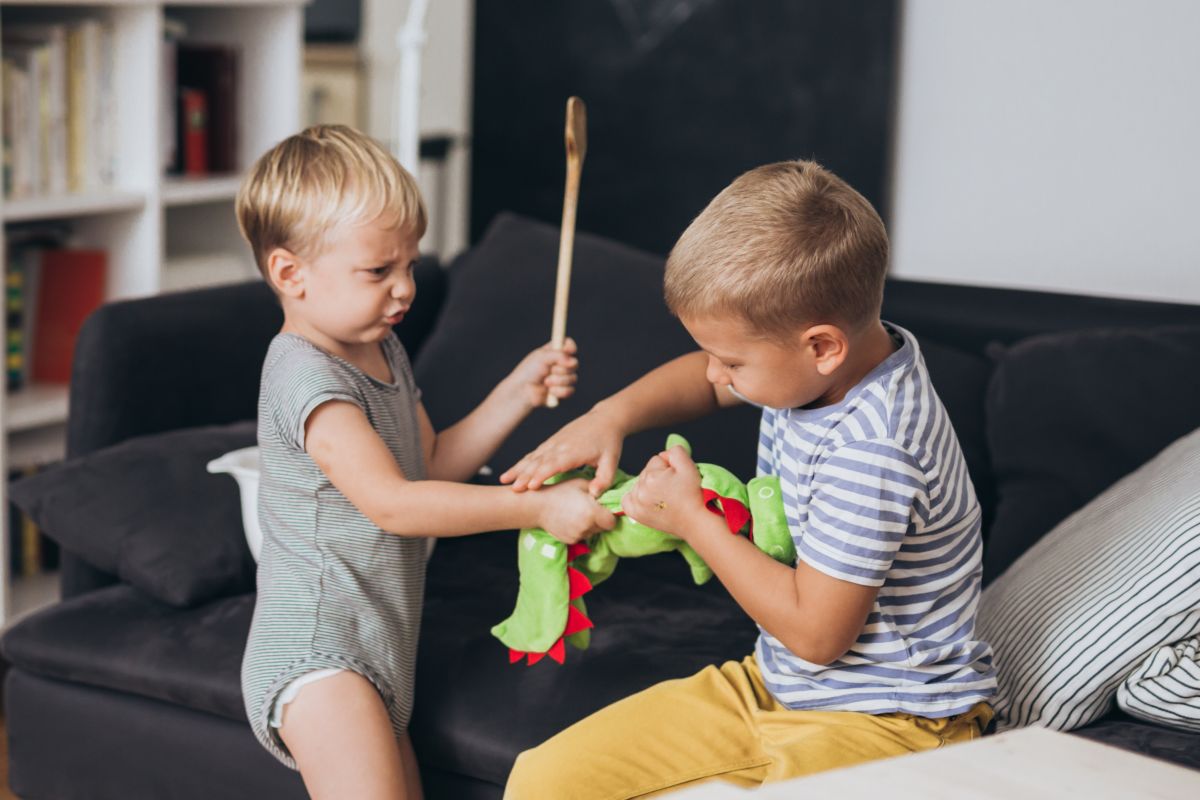Is your child hurting others? Hitting you, their siblings, or other children? 
Pushing, grabbing toys, biting, pinching, and you don’t know how to stop it?
You’re frustrated with their aggressive behavior and wondering where it came from and why they are so unkind to others. Sometimes you feel like they’re doing it on purpose. Biting or hitting you and laughing. Sometimes you might worry about how they’re going to turn out. Will they be some aggressive jerk nobody wants to be around?
Maybe you’ve tried things before:
Patiently explaining that hurting people is wrong. Telling them not to do it because it isn’t nice. Threatening them that if they hurt people they won’t have any friends. Maybe even biting them back so they see how it feels. Yelling at them. Hitting them back. (That’s not a good solution, of course, but maybe just as a demonstration so they see what it’s like and stop doing it?)
It probably didn’t help, though, if you’re here with us today. Perhaps it even got worse?
How the Unparenting course can help:
We cover common parenting strategies that actually promote this angry, aggressive, resentful behavior in children. We’ll start in the very first week of the course so you know what to watch out for. We’ll talk about what to do so your children don’t feel the need to fight you or go on the offensive, but instead feel more willing to cooperate.
You’ll learn a whole new way of communicating so that you and your children understand each other better. We’ll show you a simple communication technique to help out when your child bites you and then laughs. Or hauls off and hits you for no reason. Or lashes out at other children at preschool and you don’t know what’s going on. This new technique will help you uncover the real reasons behind your child’s behavior. Why they’re doing it, what they’re trying to tell you, or what they need. Then you’ll be able to work it out together more easily.
If you have babies or toddlers who aren’t talking yet, we have a special Expansion for Little Ones to help you out. It includes practical examples for how to communicate with very young children and understand their wishes or their behavior better.
The experiential audio sessions, which make up a significant portion of the course, show you a particular situation through a child’s eyes. This will help you understand better what they are feeling and experiencing and spot the delicate point at which a “totally normal child” mysteriously turns into an “aggressive, angry boy or girl.” (Whose parents have no idea what’s going on or where to turn.)
In the week about trust, you’ll find out how to get more trust into the communication between you and your child and how to strengthen your relationship so you can turn things around together and they won’t grow up to be some troublemaker or jerk.
You’ll also learn how to respond to your children’s emotions like anger, impatience, sadness or irritation in a way that does not encourage aggressive or destructive behavior in emotionally fraught situations, but instead helps your child process their emotions safely and calm down more quickly.
If siblings are hurting each other
We spent one out of the five weeks of the course diving deep on sibling relationships. You’ll learn how to avoid encouraging sibling rivalry and instead promote a close relationship between your children. How to handle their arguments and squabbles so that no child feels rejected, ignored, or in need of revenge against a sibling. And how to communicate with your children in general to make their disagreements less intense and help them work through conflicts and resolve their differences more easily.
What now?
Look at other topics you’re interested in and keep on exploring the course.


